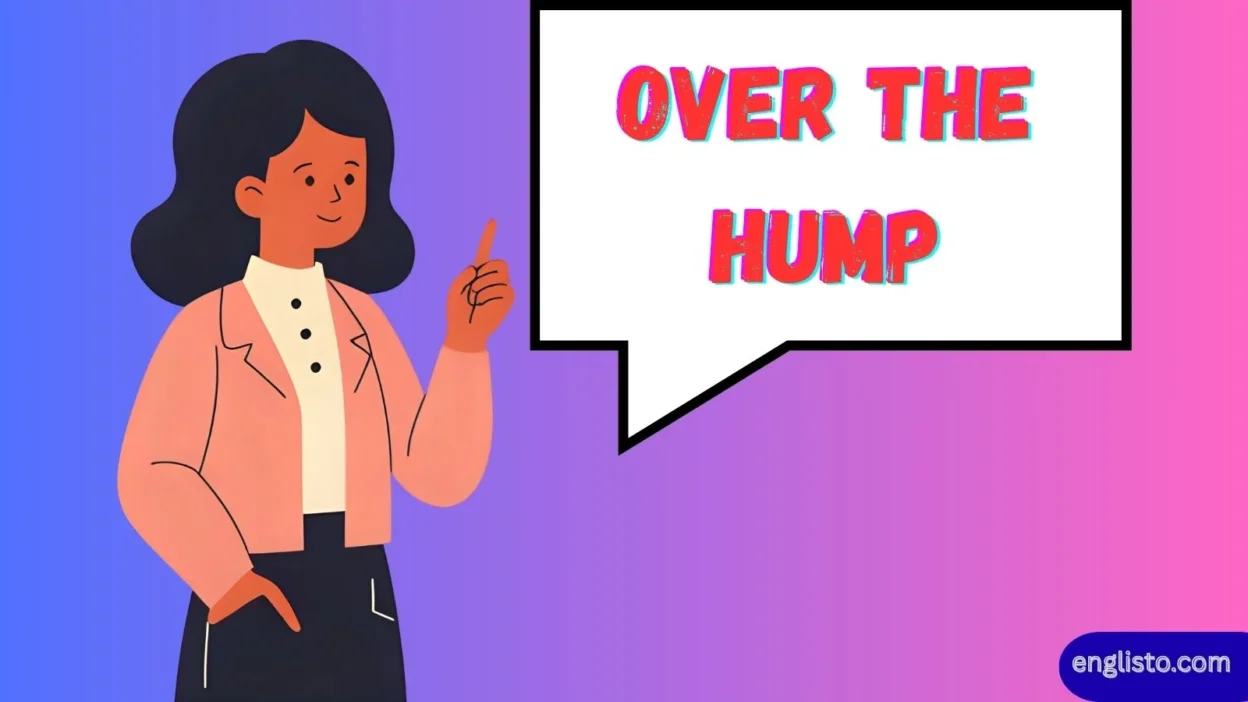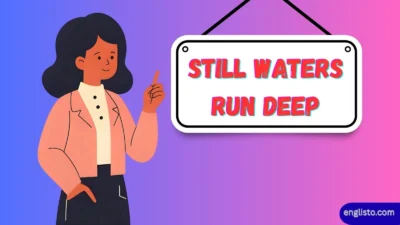Understanding idioms is like unlocking the secret flavor of the English language—they add depth, character, and a touch of culture. One such widely used expression is “over the hump.” You’ve probably heard it in workplaces, casual conversations, or even in history books. But what does it really mean? Where did it come from? And how do you use it correctly?
This guide breaks down the “over the hump idiom definition” with examples, synonyms, grammar explanations, and fascinating history, including its roots in World War II. Whether you’re polishing your English for school, work, or daily conversation, this article will make sure you’re fully “over the hump” in mastering this phrase.
What Does “Over the Hump” Mean?
The idiom “over the hump” signifies that the most difficult part of a task, project, or situation has been successfully navigated. Once you’re “over the hump,” things get easier and progress becomes smoother.
Think of it like climbing a steep hill: the hardest effort is going uphill, but once you reach the peak, the descent is easier.
Quick Definition:
- Oxford Dictionary: “To have got past the most difficult or dangerous part of something.”
- Collins Dictionary: “If you are over the hump, you have passed the most difficult or dangerous part of something.”
Examples in daily life:
- “I was really struggling with my dissertation, but now I’m over the hump—it’s coming together.”
- “She was very sick last week, but the doctor says she’s over the hump now.”
Synonyms for “Over the Hump”
Idioms often share meanings with other phrases. Below is a table of useful synonyms and related expressions you can use interchangeably.
| Expression | Tone/Usage | Example |
| Past the worst | Neutral, general | He’s past the worst of his illness. |
| Out of the woods | Informal, often about danger or illness | The patient is out of the woods now. |
| Got through it | Casual | Once we got through the exam, we could relax. |
| Crossed the peak | Metaphorical, journey-based | The project has crossed the peak, it’s smoother from here. |
| Midpoint | Neutral, factual | We’re at the midpoint of the semester, almost over the hump. |
| Past the hardest part | Clear, everyday | We’re past the hardest part of negotiations. |
Origin of the Idiom: “Over the Hump” and WWII History
The phrase has a vivid origin tied to history. During World War II, Allied pilots flew a treacherous supply route over the Eastern Himalayan Mountains, known as “The Hump.” This route stretched from India to China, delivering crucial supplies after the Japanese cut off the Burma Road.
Flying “over the hump” meant:
- Crossing the highest and most dangerous point of the journey.
- Surviving treacherous air currents, weather, and altitude.
- Once past, the remainder of the route was comparatively easier.
Over time, this military aviation term entered everyday English, evolving into the idiom we use today.
Fun fact: Pilots described the experience as “humongous risk” (connecting loosely to the slang word humongous meaning “extremely large”).
Real-Life Usage of “Over the Hump”
This idiom isn’t just about wars or mountains—it’s alive in everyday English.
Common Situations:
- Work and Projects:
“We’ve finished the first draft. We’re over the hump now.” - Health and Recovery:
“The fever broke last night—he’s over the hump.” - Life Challenges:
“After months of financial stress, I think we’re finally over the hump.” - School and Exams:
“Once midterms are over, students feel like they’re over the hump.”
Midweek Expression:
In workplaces, Wednesday is often called “hump day.” If you’re “over the hump,” it means the weekend is closer than Monday was.
Grammar and Idiomatic Nuance
Verb Forms with “Over the Hump”
- Be over the hump → “She’s over the hump.”
- Get over the hump → “We just need to get over the hump of this project.”
Informal vs. Formal
- Informal: “I’m over the hump.”
- Semi-formal: “We’ve surpassed the most difficult stage.”
Negative Contexts
Sometimes it’s used to express struggle rather than relief:
- “I don’t think we’re over the hump yet.”
“Over the Hump” in British vs. American English
| Variety | Meaning | Example |
| British English | Mainly used for large portions of work or time. | “We’re over the hump with this project timeline.” |
| American English | Common in illness, stressful periods, and “hump day.” | “She’s over the hump and improving steadily.” |
Related Expressions and Comparisons
Idioms often overlap in meaning. Here are some related ones:
- Throw down the gauntlet – Means to challenge someone (not the same, but often appears alongside “over the hump” in idiom lists).
- Get over it – To stop being upset about something (different nuance, but shares “get over” structure).
- Climb the mountain – Overcoming challenges.
Examples of “Over the Hump” in Sentences
| Context | Sentence Example |
| Work | “We’ve done the hardest part of the design—we’re over the hump now.” |
| Health | “The doctor said I was over the hump and could go home soon.” |
| Study | “Once I finished the literature review, I was over the hump in my dissertation.” |
| Life | “We were struggling in the early months of marriage, but we’re over the hump now.” |
| Sports | “The team is finally over the hump after defeating last year’s champions.” |
FAQs about “Over the Hump Idiom Definition”
Q1: What does “over the hump” mean in the Oxford Dictionary?
It means you’ve passed the most difficult or dangerous part of a task or situation.
Q2: Is “over the hump” formal or informal?
It’s mostly informal, but acceptable in semi-formal writing when used metaphorically.
Q3: Can “over the hump” be used in health contexts?
Yes, very commonly. Doctors or caregivers often say “the patient is over the hump” to signal recovery.
Q4: Is “over the hump” only American?
No, it’s used in both British and American English, though Americans often use it for “hump day” (Wednesday).
Q5: What’s the historical origin of “over the hump”?
It traces back to WWII Allied pilots flying the perilous supply route over the Himalayas called “The Hump.”
Conclusion
The idiom “over the hump” beautifully captures the human experience of pushing through challenges. Whether you’re battling illness, writing a dissertation, or simply counting down to the weekend, the phrase reminds us that once the hardest part is behind us, the path ahead gets easier.
From its WWII roots in the Himalayas to today’s boardrooms, classrooms, and casual chats, “over the hump” is a powerful metaphor of resilience and progress. Next time you use it, you’ll know you’re not just speaking an idiom—you’re echoing history, perseverance, and triumph.



